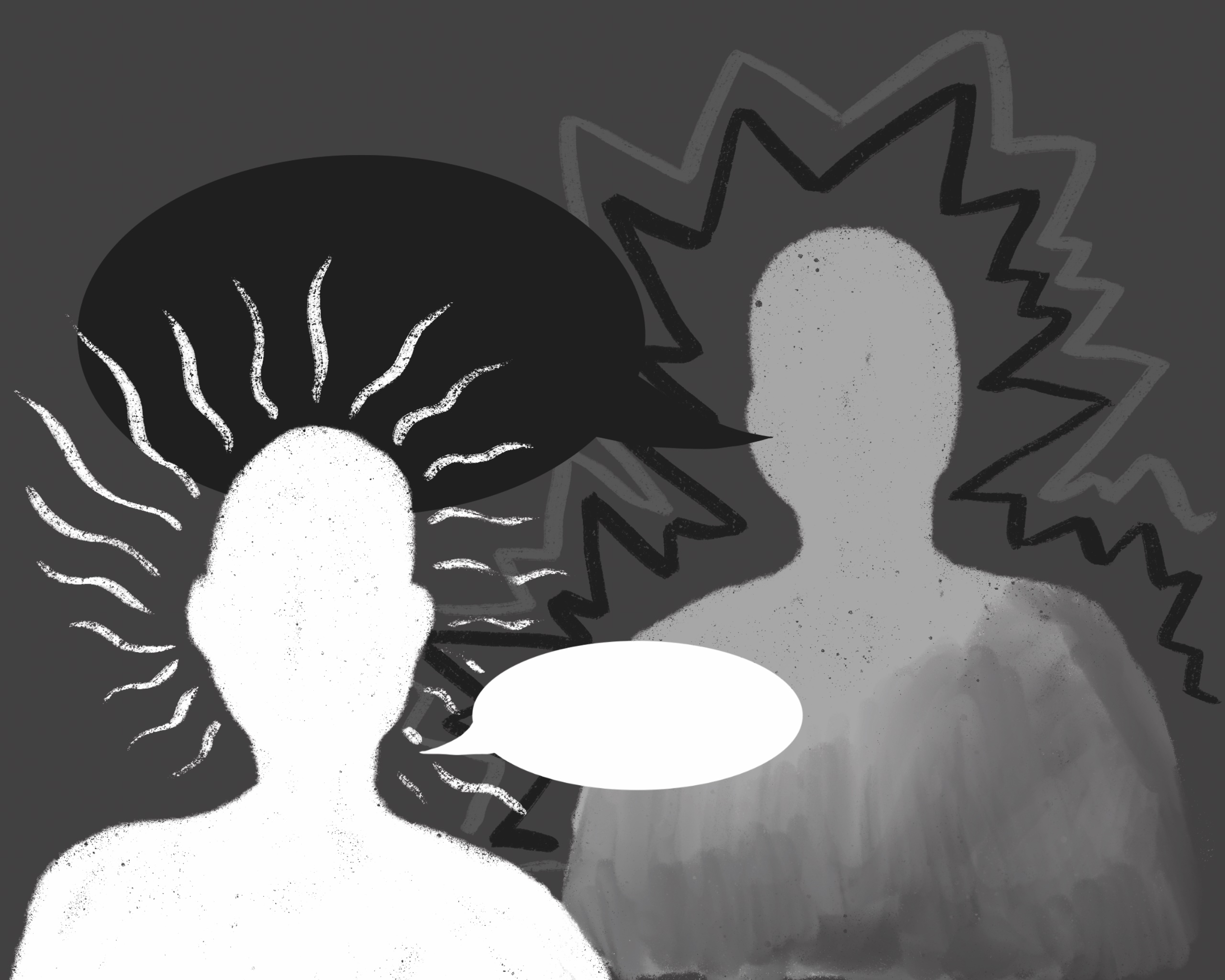Psychological Safety and felt sensation with Kate Nicholson
December 6, 2024
 Eva Ahn
Eva AhnIn previous columns, we have focused on how understanding our fears can help us live with them. Is this the only way? This week, we explored healing with Kate Nicholson, the assistant director of student wellness programs and coordinator of wellness outreach. Trained as a yoga instructor, reiki practitioner and massage therapist, Nicholson believes that the body is the source of emotions and that it can be a site of healing. She shared some insights into felt experiences as ways of healing, as well as the patterns of fear she notices on campus. Through her “Well Chats,” a program where students can engage in one-on-one conversations with Nicholson, she hears about the fears and “dis-ease” that students are experiencing. This “dis-ease,” according to Nicholson, describes the uneasiness around mental health or mental stability.
Students come to “Well Chats” when something is “off.” Sometimes they know what is wrong. Other times, they cannot express the source of their unease, but Nicholson finds that students have more knowledge than they give themselves credit for. Ironically, she finds that the most common feelings are the hardest to share.
“They actually often do know, but they don’t know how to dare to share or express it,” Nicholson says. “[Loneliness or homesickness] feels like an experience that is so human, so normal, so to be expected, especially on the heels of one of the biggest transitions and changes in one’s young life coming to college,… [yet there is a] hook of shame attached to it.”
In her experience as a staff member, she feels a parallel experience, not with loneliness, but with fear manifested as a result of questioning whether her work and perspective is enough. She reflects on Francis Weller’s concept of the “commons” as a means of confronting this fear.
“Grief and loneliness are the commons of the soul, the thing that we as humans have in common, [and yet] they are some of the places that feel the darkest and most uncharted,” she says, quoting Weller.
According to Nicholson, to chart grief and loneliness together, we need to be comfortable enough to share. Psychological safety influences our ability to share those scarier feelings. Nicholson describes how our sense of psychological safety affects our engagement socially, in classes, in office hours and in every space we are in.
“Does it feel safe in this room, in this space, among these people, these other bodies in the room, these other people … for me to be all of who I am in this moment?” Nicholson says. “We are constantly assessing for that, consciously or unconsciously.”
That is why Nicholson loves having “Well Chats”—because they are a space where students feel safer to reveal more of themselves. We invite readers to create psychologically safe spaces like these more often, so that we can feel comfortable expressing our feelings and grappling with them at the cognitive and conversational level. Although Nicholson loves talk therapy, she also raises bodily, non-verbal practices as alternative tools for managing emotions.
We do not always have to understand what is happening in order to heal. There are many theories regarding emotion, but one is that emotions are felt in the body first, and then interpreted by the mind; this is the model Nicholson works with. If emotions are “sensations first,” as Nicholson says, then perhaps we can treat them at the bodily level without ever deciphering a cognitive interpretation. Every week, there are students who come to Nicholson’s yoga sessions not really knowing what is wrong, but leave feeling better. These students felt dis-ease in their body and used their body to address it without necessarily unpacking the disease cognitively.
We do not always need to understand what is going on to feel better, Nicholson reminds us as she sits outside the weekly acupuncture clinic in Ladd.
“If you ask all the students who are in there receiving acupuncture right now, what is acupuncture, how and why does it work and what just happened for them? My pretty confident guess is that they would not be able to answer that for you,” Nicholson says. “And yet, did it work?… I trust that, yes, indeed, something, some degree of healing or support resourcing occurred without any necessary intellectual understanding of the process.”
The acupuncture clinic is offered Wednesdays from 11a.m. to 1p.m. in Ladd House (except during finals), several yoga classes are offered in Buck every week (except during finals) and Kate Nicholson is available for one-on-one wellness chats by appointment.

Comments
Before submitting a comment, please review our comment policy. Some key points from the policy: